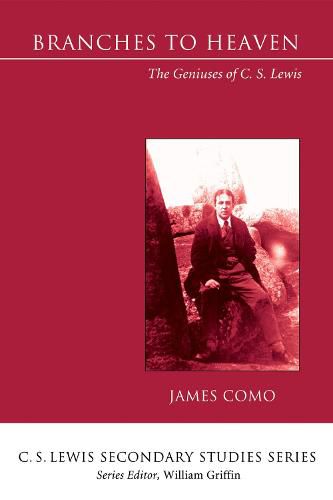Readings Newsletter
Become a Readings Member to make your shopping experience even easier.
Sign in or sign up for free!
You’re not far away from qualifying for FREE standard shipping within Australia
You’ve qualified for FREE standard shipping within Australia
The cart is loading…






This title is printed to order. This book may have been self-published. If so, we cannot guarantee the quality of the content. In the main most books will have gone through the editing process however some may not. We therefore suggest that you be aware of this before ordering this book. If in doubt check either the author or publisher’s details as we are unable to accept any returns unless they are faulty. Please contact us if you have any questions.
Of Edmund Spenser, C. S. Lewis wrote, his work is one, like a growing thing, a tree with branches to heaven and roots to hell. And in between these two extremes comes all the multiplicity of human life. This book seeks to demonstrate the aptness of that quotation when applied to Lewis himself. From his deepest emotional and psychological landscape, to his prevailing temperament, and then to his training, Lewis marshaled his magnificent rhetorical skills on behalf of his vocation: to make Christianity a reasonable and inviting alternative to doubters. In this–and through the many genres of which he was a master–he never wavered. These are the branches–the available means of persuasion, as Aristotle put it. Sources, influences, experience and his very self: these are the roots. A close look at these, with a combination of argument, critical analysis, and some fresh connections, finally yield an unexpected portrait. C. S. Lewis and his work are indeed one, with deeper roots and loftier branches than the current reputation of the master and his avuncular persona suggest.
$9.00 standard shipping within Australia
FREE standard shipping within Australia for orders over $100.00
Express & International shipping calculated at checkout
This title is printed to order. This book may have been self-published. If so, we cannot guarantee the quality of the content. In the main most books will have gone through the editing process however some may not. We therefore suggest that you be aware of this before ordering this book. If in doubt check either the author or publisher’s details as we are unable to accept any returns unless they are faulty. Please contact us if you have any questions.
Of Edmund Spenser, C. S. Lewis wrote, his work is one, like a growing thing, a tree with branches to heaven and roots to hell. And in between these two extremes comes all the multiplicity of human life. This book seeks to demonstrate the aptness of that quotation when applied to Lewis himself. From his deepest emotional and psychological landscape, to his prevailing temperament, and then to his training, Lewis marshaled his magnificent rhetorical skills on behalf of his vocation: to make Christianity a reasonable and inviting alternative to doubters. In this–and through the many genres of which he was a master–he never wavered. These are the branches–the available means of persuasion, as Aristotle put it. Sources, influences, experience and his very self: these are the roots. A close look at these, with a combination of argument, critical analysis, and some fresh connections, finally yield an unexpected portrait. C. S. Lewis and his work are indeed one, with deeper roots and loftier branches than the current reputation of the master and his avuncular persona suggest.